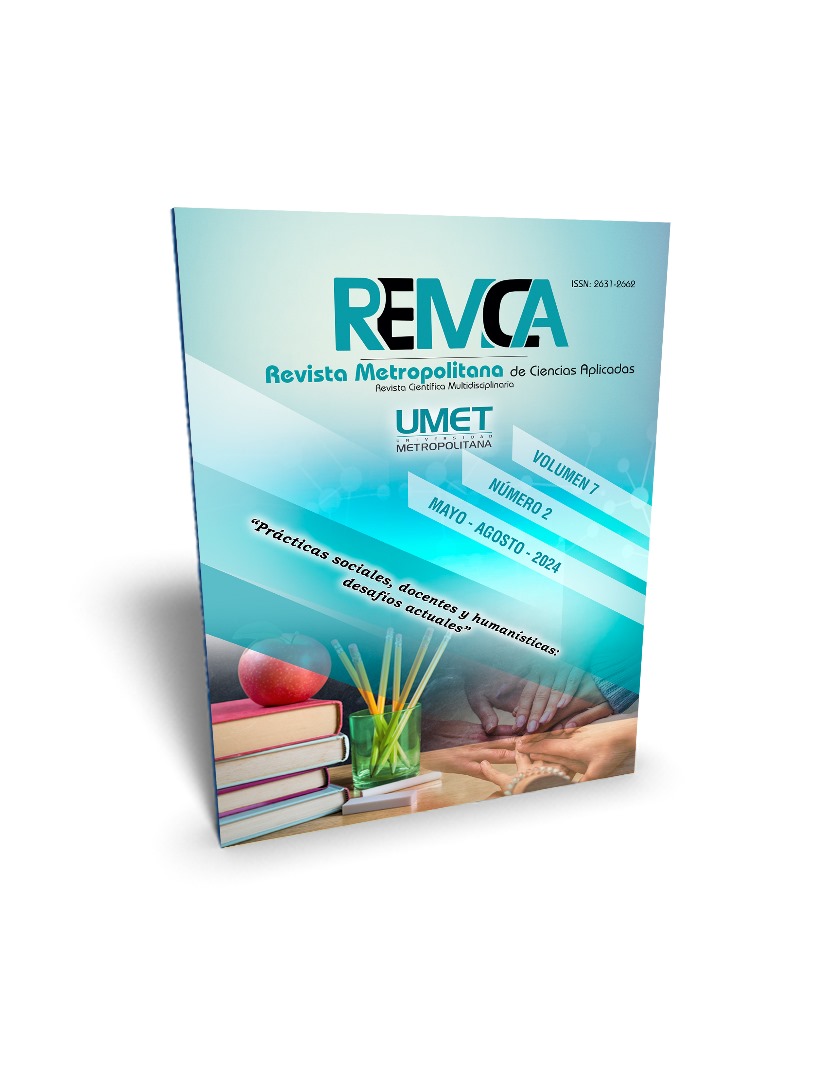Application of forensic psychology in criminal assessment and its impact on Ecuadorian legal processes
DOI:
https://doi.org/10.62452/mvkb6146Keywords:
Forensic psychology, human behavior, criminal proceedings, constitutional rightsAbstract
Forensic psychology has had a wide development within the legal sciences, providing adequate means and tools to facilitate the evaluative criteria of human behavior. In criminal matters, it leads, among other issues, to clarify the motivations of the accused and thus provide greater evidentiary certainty at the time of sentencing. The main objective is to analyze the application of forensic psychology in criminal evaluation and its impact on criminal proceedings, to understand its relevance, effectiveness and contribution to judicial decision making. To achieve this objective, the qualitative approach has been applied, with scientific methods such as analytical-synthetic, historical-logical, and inductive. Among the results, it has been shown that forensic psychology is not commonly used, due to the lack of accredited and specialized professionals, as well as of specific norms that lead to the promotion of a culture of its function and contribution to criminal law. It is essential to have medical, technical, and professional criteria that allow the application of fairer rules aimed at the protection of constitutional rights to ensure proper training and social reintegration of persons criminally punished.
Downloads
References
Arce, R., Fariña, F., & Novo, M. (2005). Psicología Jurídica. Consellería de Xustiza, Interior e Administración Local Xunta de Galicia. https://doi.org/https://www.researchgate.net/profile/Ramon-Arce/publication/288670812_Psicologia_juridica/links/5683079b08aebccc4e0e1f6e/Psicologia-juridica.pdf
Arcia, W. (2019). La actualidad forense en el Ecuador. Revista Ciencia Digital, 3(11), 142-155. https://cienciadigital.org/revistacienciadigital2/index.php/CienciaDigital/article/view/366/784
Ecuador. Asamblea Nacional Constituyente. (2008). Constitución de la Republica del Ecuador. Registro Oficial No. 449. https://www.fielweb.com/Index.aspx?17&nid=1#norma/1
Ecuador. Asamblea Nacional. (2014). Codigo Orgánico Integral Penal. Registro Oficial Suplemento No. 180. https://www.fielweb.com/Index.aspx?19&nid=1070225#norma/1070225
Ecuador. Consejo de la Judicatura. (2023). Sistema pericial - Consulta de Peritos Acreditados. https://appsj.funcionjudicial.gob.ec/perito-web/pages/peritos_nacional.jsf
Gómez, R. (2022). El control constitucional en el Ecuador. Una aproximación teórica y filosófica. FORO: Revista de Derecho, (38), 121-144. https://doi.org/https://doi.org/10.32719/26312484.2022.38.6
Harbottle, F. (2019). Psicopatía y capacidad de culpabilidad: un acercamiento al debate actual. Medicina Legal de Costa Rica, 36(1), 135-146. https://www.scielo.sa.cr/scielo.php?script=sci_arttext&pid=S1409-00152019000100135
Hernández Sampieri, R., Fernández Collado, C., & Baptista Lucio, M. (2010). Metodología de la Investigación. McGraw Hill.
Jiménez, D., Jiménez, R., & Torres, R. (2021). Psicología Forense, Jurídica, Criminilógica e Informática, aplicado al contexto ecuatoriano. Editorial Universidad Técnica de Babahoyo.
Manzanero, A. (2009). Psicología Forense: Definición y Técnicas. Instituto Universitario General Gutiérrez Mellado –UNED.
Morales, L. (2010). Psicología Jurídica: quehacer y desarrollo. Diversitas: perspectivas en Psicología, 6(2), 237-356. http://www.scielo.org.co/scielo.php?script=sci_arttext&pid=S1794-99982010000200004&lng=en&tlng=es.
Muñoz, E. (2018). Repercusiones de los informes periciales psicológicos en el derecho de tutela judicial efectiva de los casos de violencia psicológica contra las mujeres en el Ecuador. (Tesis de Maestría). Universidad Andina Simón Bolívar.
Peña, M., & Toledo, N. (2022). Problemas del proceso de peritaje psicológico de una persona adulta para determinar su internamiento en el área de iniputables en las instituciones de salud mental en el Ecuador. (Tesis de grado para la obtención del título de Psicología). Universidad Poltécnica Salesiana.
Rodríguez, A. (2023). Valoraciones sobre la aplicabilidad de la psicología forense en Ecuador. Behavior & Law Journal, 9(1), 80-91. https://doi.org/10.47442/blj.2023.101
Salazar, Á., & Herrera, Á. (2017). Evaluación psiquátrica-psicológica forense de Simulación. A propósito de un caso forense real. Iuris Dictio. Revista de Derecho, (20), 167-177. https://doi.org/http://dx.doi.org/10.18272/iu.v20i20
Torré, A. (2003). Introducción al Derecho. LexisNexis - Abeledo-Perrot.
Torres, L. (2021). Campos de intervención y competencias del psícologo jurídico y forense en el Ecuador. (Tesís de Maestría). Universidad de Otavalo.
Downloads
Published
Issue
Section
License
Copyright (c) 2024 Giver Jhonatan Rogel-Rojas, Yudith López-Soria (Autor/a)

This work is licensed under a Creative Commons Attribution-NonCommercial-ShareAlike 4.0 International License.
Authors who publish in Revista Metropolitana de Ciencias Aplicadas (REMCA), agree to the following terms:
1. Copyright
Authors retain unrestricted copyright to their work. Authors grant the journal the right of first publication. To this end, they assign the journal non-exclusive exploitation rights (reproduction, distribution, public communication, and transformation). Authors may enter into additional agreements for the non-exclusive distribution of the version of the work published in the journal, provided that acknowledgment of its initial publication in this journal is given.
© The authors.
2. License
The articles are published in the journal under the Creative Commons Attribution-NonCommercial-ShareAlike 4.0 International License (CC BY-NC-SA 4.0). The terms can be found at: https://creativecommons.org/licenses/by-nc-sa/4.0/deed.en
This license allows:
- Sharing: Copying and redistributing the material in any medium or format.
- Adapting: Remixing, transforming, and building upon the material.
Under the following terms:
- Attribution: You must give appropriate credit, provide a link to the license, and indicate if any changes were made. You may do this in any reasonable manner, but not in any way that suggests the licensor endorses or sponsors your use.
- NonCommercial: You may not use the material for commercial purposes.
- ShareAlike: If you remix, transform, or build upon the material, you must distribute your creation under the same license as the original work.
There are no additional restrictions. You may not apply legal terms or technological measures that legally restrict others from doing anything the license permits.




